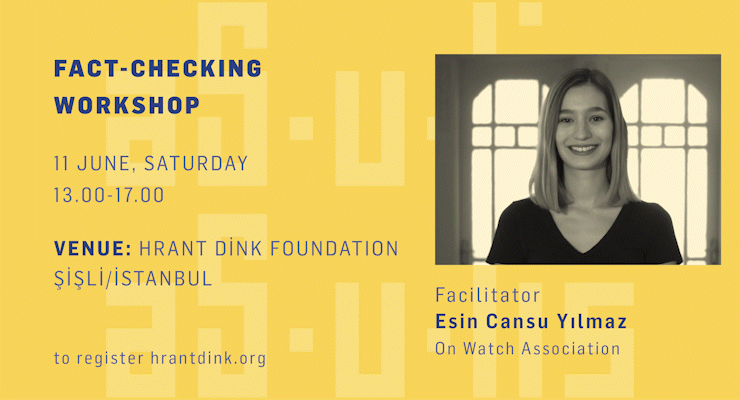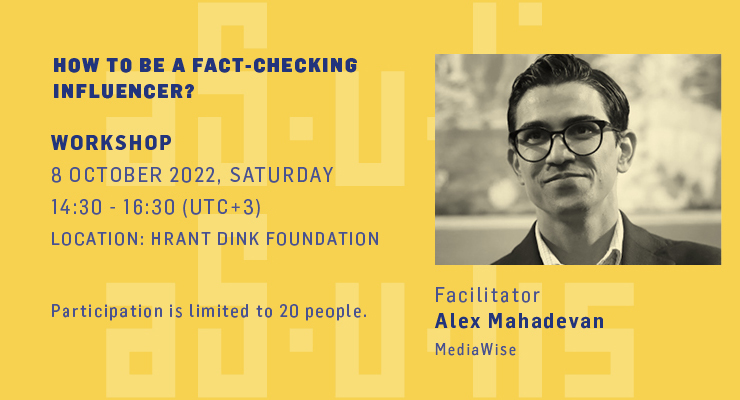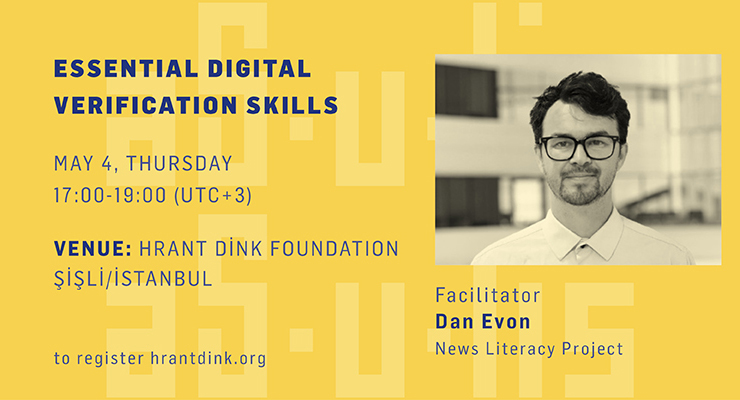As part of the series organized within the scope of the project “Utilizing Digital Technology for Social Cohesion, Positive Messaging and Peace by Boosting Collaboration, Exchange and Solidarity”, the second workshop “How to Be a Fact-Checking Influencer?” took place on Saturday, October 8, 2022. The workshop was held at the Hrant Dink Foundation by MediaWise founding director Alex Mahadevan with 21 participants aged 14-17.
During the first part of the workshop, the concepts of false and incomplete information and the differences between the two were discussed. The participants were informed about how the practices of producing and disseminating false and incomplete information on social media differ.
Alex Mahadevan stated that 41% of youth share misinformation on social media and that only 28% of those fact-check before sharing something. He also stated that spreading misinformation and not being aware of false and incomplete information causes the misinformation to increase. He made a presentation on the ways to check the accuracy of social media content and shared tips with the participants on how to develop their digital literacy skills as well as the methods for fact-checking.
Mahadevan stressed that incomplete and wrong information was created in social media via missing context, echo chambers, zombie claims, artificial intelligence, and deepfake and he shared examples of these with the participants.
The participants were taught how to analyze content on social media as digitally literate users by tracing who shared the information, how to reach the source of the content, and how to proof-check the information through different sources. Throughout the workshop, the participants received tips on how to verify the accuracy of the information on the internet with the help of lateral reading, reading upstream, reverse image search, and geolocation.

This project is financed by the European Union.





